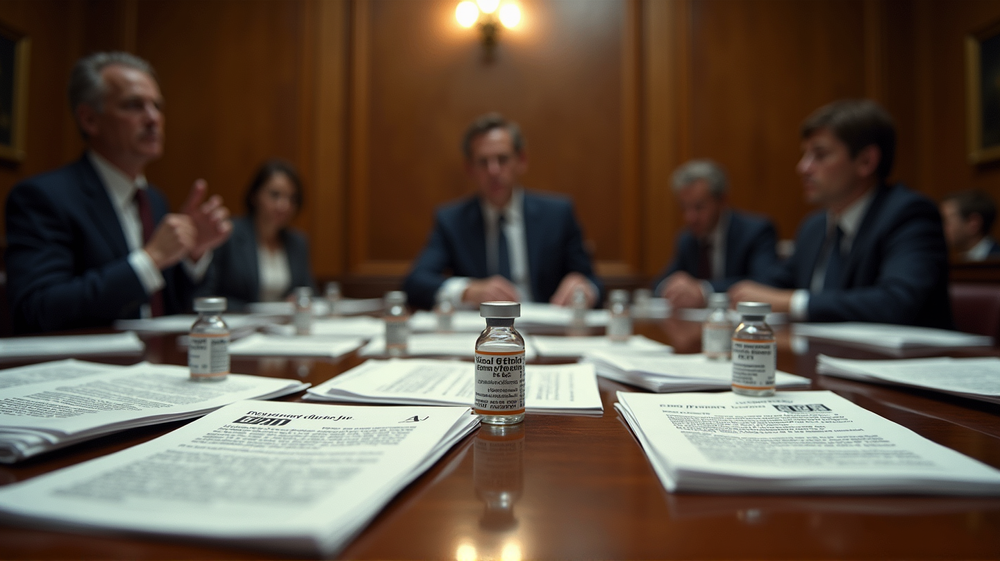In a development that has sent ripples through the halls of Congress, a document released by Robert F. Kennedy Jr., Secretary of Health and Human Services, is being criticized by experts for transmitting “medical disinformation” regarding recent changes to the COVID vaccine schedule. The memo, circulated among congressional members, has ignited significant concerns over its scientific validity and potential influence on policy decisions, causing heated debates among lawmakers.
A Stirring of Discontent
The document, which purportedly justifies Secretary Kennedy’s decision to modify the U.S. COVID vaccine policy, allegedly distorts and misinterprets crucial scientific studies. Dr. Mark Turrentine, an obstetrics expert, critiqued the document as “insulting” to Congressional members, emphasizing that they depend on accurate scientific data to inform their decisions. He argues that this memo fails to meet the standard for reliability that should characterize health agency communications.
Breaking Trust with Science
Dr. Sean O’Leary, a prominent figure in pediatric infectious disease research, accuses RFK Jr. of cherry-picking disputed data, a strategy he claims Kennedy has employed over the years to support his anti-vaccine narratives. The document references studies that are either under investigation for credibility issues or unpublished, sowing confusion and mistrust.
Myocarditis and Pregnancy: Misleading Claims
One particularly contentious point involves the assertion that COVID vaccines pose a higher risk of myocarditis, a claim based on outdated research that fails to reflect the current lessening risk. Similarly, statements about vaccine dangers to pregnant women were refuted by the very studies cited, highlighting a disconnect between the memo’s claims and established scientific understanding.
The Role of Congress in Upholding Scientific Integrity
The pressure mounts as Congress, reliant on accurate health information, grapples with the consequences of potential misinformation. While some lawmakers may lack the expertise to dissect these scientific references, the authorship of this document remains undisclosed, raising ethical questions about transparency and accountability within health agencies.
Moving Forward
The issue underscores the need for scientifically grounded policies, particularly as lawmakers make decisions impacting public health. According to NPR, it’s a stark reminder of the importance of vigilance against misinformation within government discussions—a misstep that could have lasting ramifications on public trust and health outcomes.
As RFK Jr. navigates the complexities of health policy, this incident serves as a critical juncture, urging a reaffirmed commitment to science-driven governance and transparent, accurate communication with decision-makers and the public alike.













